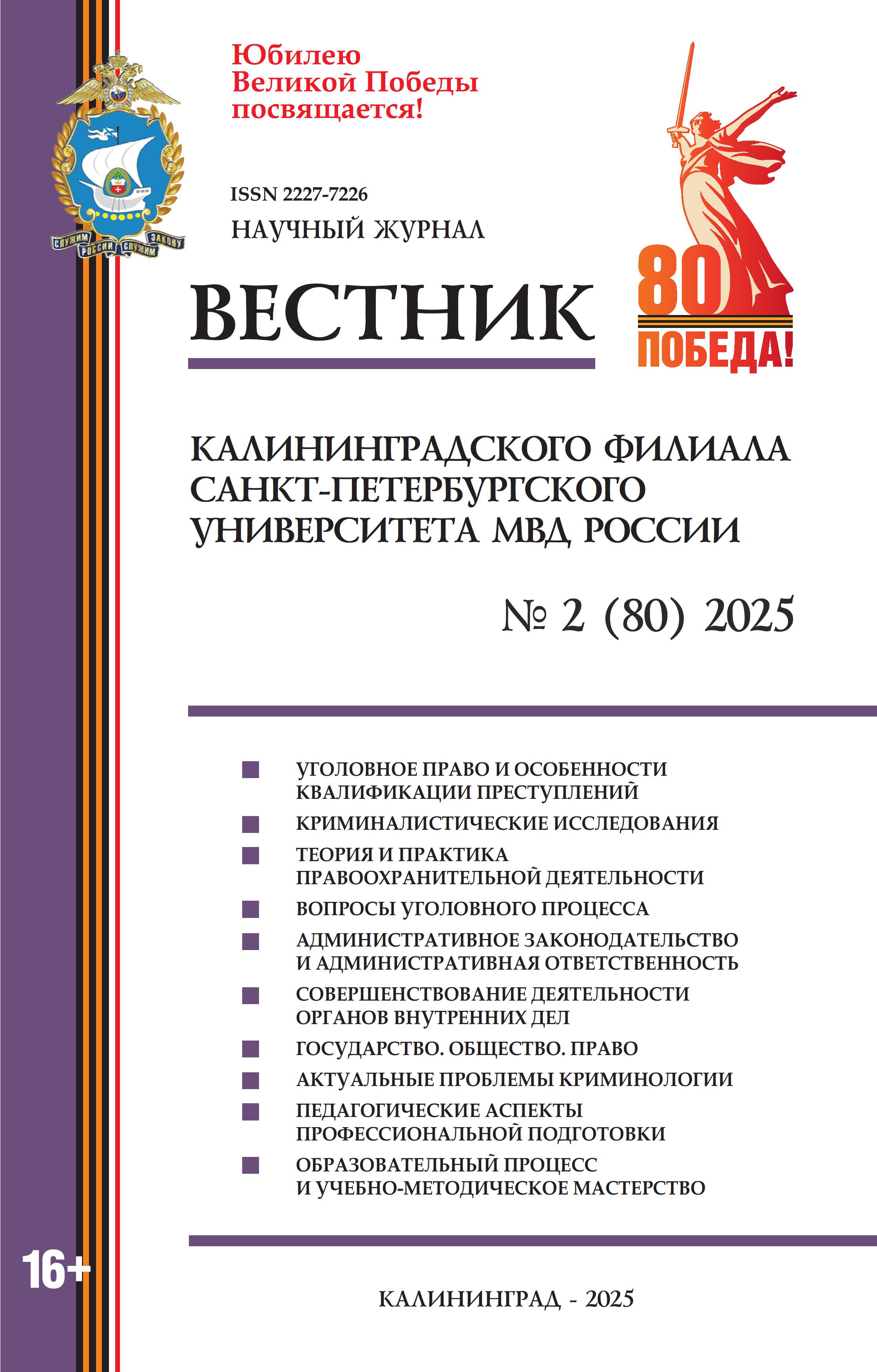employee
Sankt-Peterburg, St. Petersburg, Russian Federation
Introduction.Blockchain analytics is considered in the article as a non-procedural form of using specialized knowledge in the context of solving and investigating crimes committed using cryptocurrency assets. The relevance of the topic of the study conducted by the author is due to the growth of digital crime rates, as well as the need to adapt forensic methods to the features of the functioning of distributed data registries. Methods. The study required general scientific and special methods. The logical-structural method was used to study blockchain analytics as a non-procedural form of using specialized knowledge. The formal-legal method made it possible to analyze legislative norms as grounds for the introduction of high-tech software solutions in law enforcement. Results. The role of blockchain analytics is determined as a special non-procedural form of using specialized knowledge in the context of solving and investigating crimes committed using cryptocurrency. Particular attention is paid to specialized software products that perform blockchain analytics in real time, such as «Chainalysis», «Crystal Blockchain», «Elliptic», as well as the domestic system «Transparent Blockchain». The stages of analytical work, sources of information, and the mechanism for identifying high-risk transactions are outlined. A conclusion is made about the need to consolidate the procedure and results of blockchain analytics in a private investigation methodology as an effective element of modern digital forensics
Crime investigation, digital crime, cryptocurrency, blockchain analytics, distributed data registry, specialized software product, specialized knowledge








